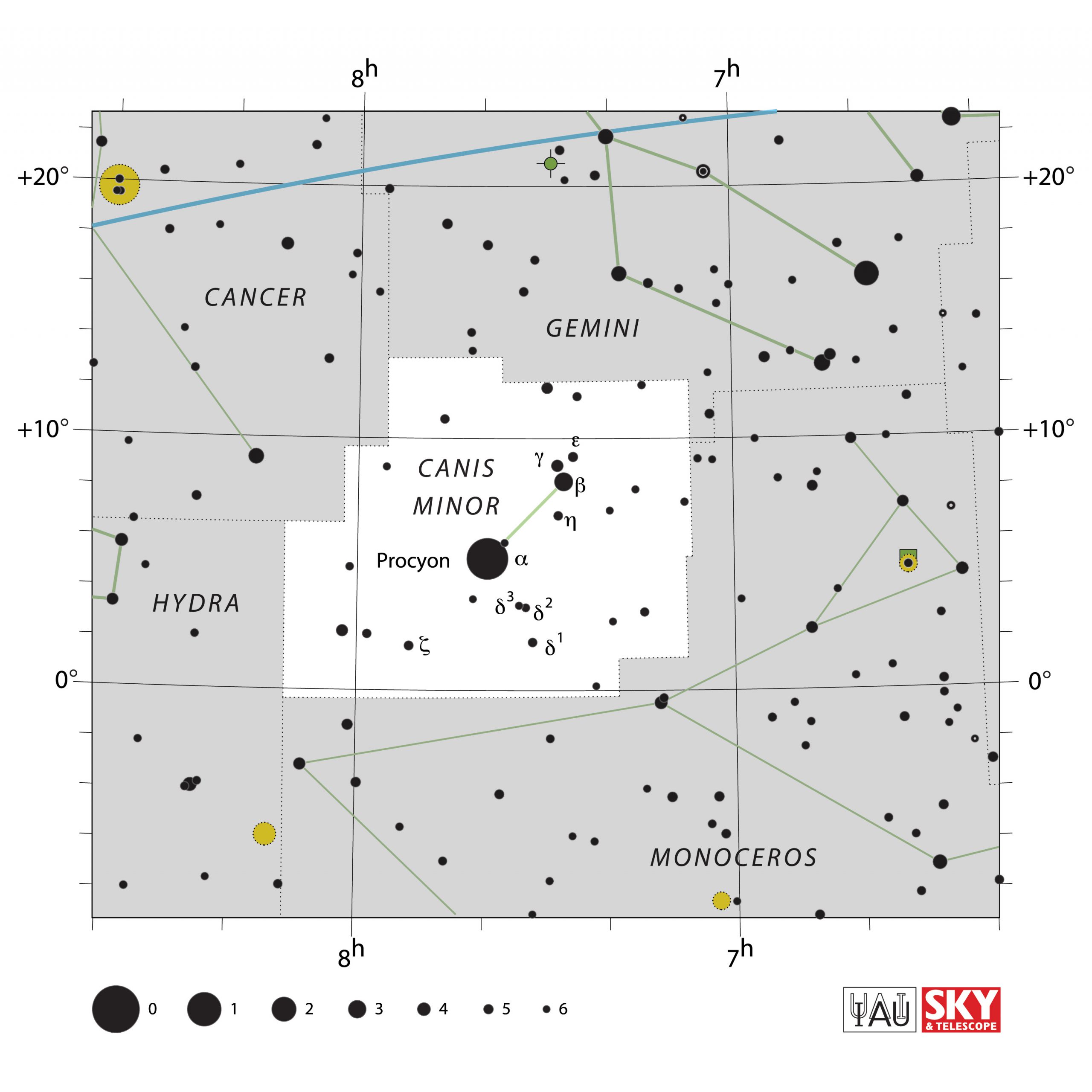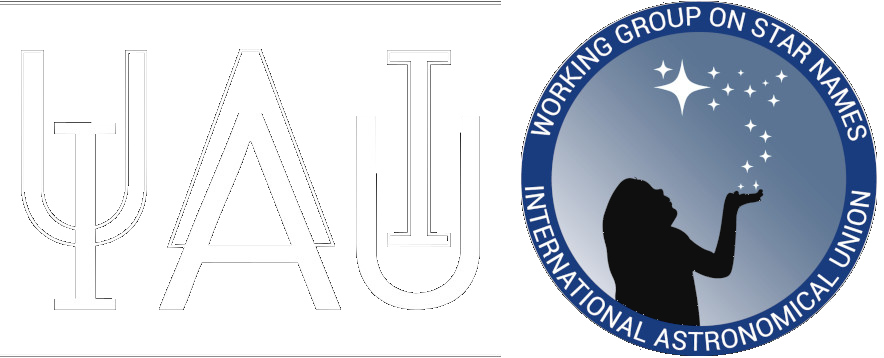Profile / Characteristics
| English translation | Latin declination and pronunciations | Size/ °² | # stars (visible) |
| the Lesser Dog | Canis Minor – CANE-iss (CAN-iss) MY-ner Canis Minoris – CANE-iss (CAN-iss) mih-NOR-iss | 183 | 46 |
Main Star (brightest one):
| Designation | HIP number | name in IAU-CSN | brightness |
| α CMi | HIP 37279 | Procyon | 0.37 mag (V) |
Our (modern) Explanation
The modern name is Latin “The Lesser Dog” in contrast to Canis Major, the Greater Dog. However, in antiquity, this constellation was named “The one [asterism] before the Dog” because it rises a bit earlier in the northern hemisphere. The Greek term for “the one before the dog”, “pro kýon”, nowadays is used as a name for the brightest star of the constellation.
Ancient Globes

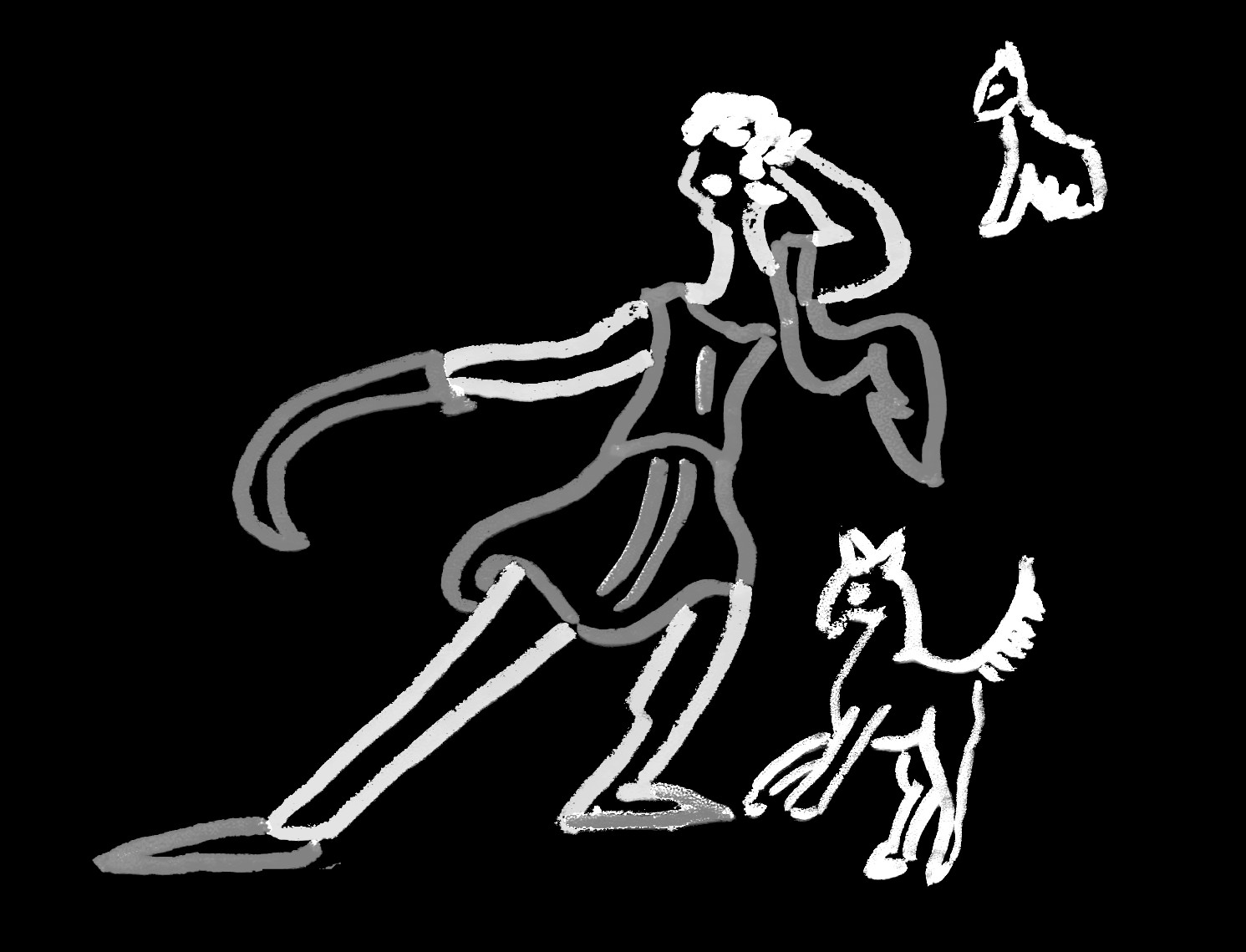
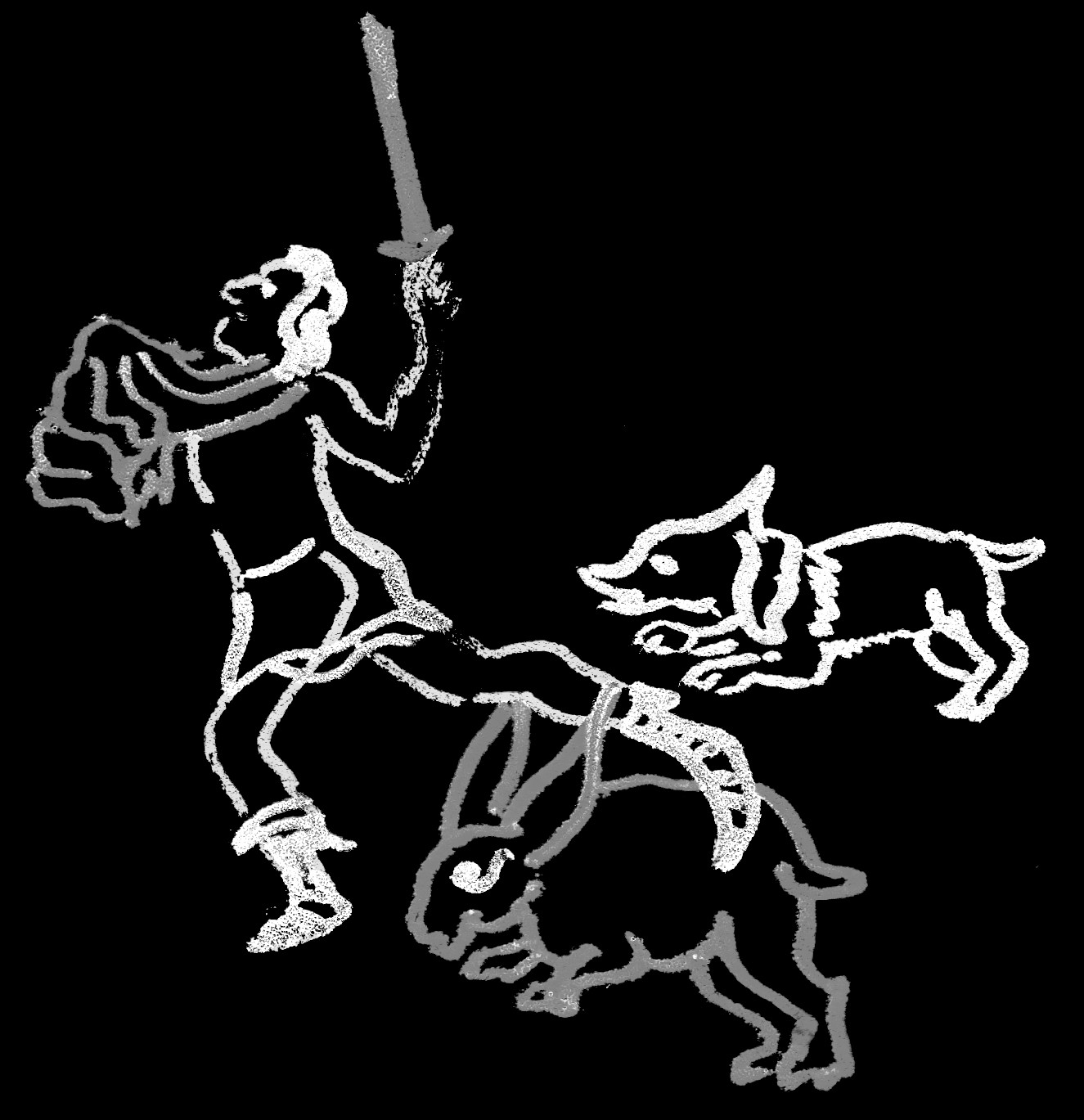
Farnese Globe
Kugel Globe
Mainz Globe
missing (hand of Atlas)
two dogs accompany Orion
the lesser dog accompanies Orion who stumbles upon the Hare
Ancient Lore & Meaning
Aratus
[449] There, too, by the Hydra beneath the Twins brightly shines Procyon. [594?] Up rises the Hydra’s head and the bright-eyed Hare and Procyon and the forefeet of the flaming dog. [690?] She [Argo] sinks wholly at the rising of Aegoceros, when Procyon sets too, and there rise the Bird and the Eagle and the gems of the winged Arrow and the sacred Altar, that is established in the South.
Reference:
English translation by Douglas Kidd (1997).
Aratus: Phaenomena, Cambridge Classical Texts and Commentaries, Series Number 34
Pseudo-Eratosthenes
References:
French translation by:
Jordi Pàmias i Massana and Arnaud Zucker (2013). Ératosthènes de Cyrène – Catastérismes, Les Belles Lettres, Paris
English version in:
Robin Hard (2015): Eratosthenes and Hyginus Constellation Myths with Aratus’s Phaenomena, Oxford World’s Classics
Modern and Mediaeval Depiction

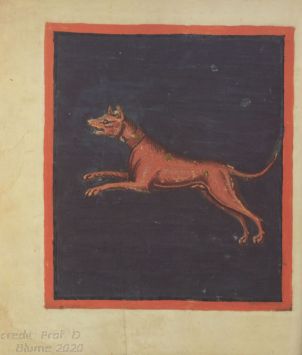
Depiction in Stellarium (by Fabien Chéreau, since 2000 CE)
depiction in the Leiden Aratea (9th century CE)
Early Modern Interpretation
Contemporary
As one of their first tasks in the 1920s, the newly founded International Astronomical Union (IAU) established constellation standards. The Belgian astronomer Eugène Delporte was assigned to the task to define borders of constellations parallel to lines of declination and right ascension. They were accepted by the General Assembly in 1928. The standardized names and abbreviations had already been accepted in 1922 and 1925.
